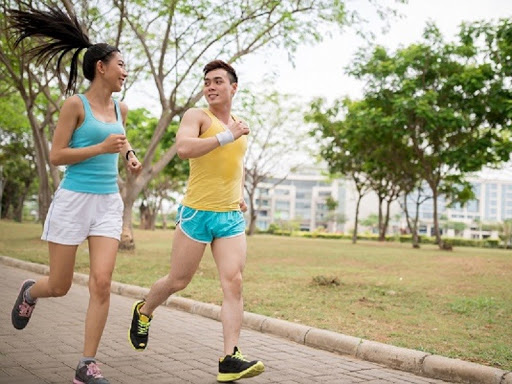Physical activity should play a major role along with the monitoring of a healthy diet, especially in patients undergoing bariatric surgery. The influence of diet on sports performance is associated with many good health results on a physical and psychological level, as well as on an aesthetic level.
One of the objectives of surgery for obesity is to reduce the body fat mass of patients, we must perform physical activity to facilitate this loss of fat and “help” the surgery to achieve its goal.
In addition, it is important that the sport we do contributes to increasing lean body mass and muscle tone, so that we avoid the possible body flaccidity that occurs with sudden weight loss.
Physics?
Our body needs fuel for energy in order to cover the basic and “extra” energy needs derived from physical activity. This fuel is obtained from “energy reserves” stored in our body. Thus we find two major energy components:
Glycogen:
The way glucose (energy) is stored in our body, it comes from bread, pasta, rice, vegetables, fruit… Glucose is a very efficient energy source because it easily provides a great amount of energy, but its reserves are very reduced:
- Muscle glycogen: it supplies the needs of the muscle for immediate physical activity.
- Hepatic glycogen: regulates blood glucose levels, which is the main fuel for the brain, the organ that regulates our concentration and mood, and is therefore involved in good sports performance.
The fat:
Stored subcutaneously, in the adipose tissue and in the form of triglycerides. They are also found surrounding the body’s soft organs, giving them protection against mechanical shocks.
Fat is not as efficient a fuel, but unlike the glycogen reserve which is limited, fats are stored in greater quantities offering greater bioavailability, but the following guidelines must be taken into account:
- The caloric intake of fat in the diet should not exceed 25-30%, except in endurance sports which can be increased to 35% fat.
- An increase in dietary fat leads to a decrease in glycogen reserves, so the power of physical activity may be diminished.
- It is recommended that at least 30-40% of the fat provided in the diet comes from vegetable origin, mainly extra virgin olive oil.
How is the process of energy utilization carried out during physical activity?
When we are doing physical activity, our body gets energy from glycogen and fat depending on the type and intensity of sport we are doing. The energy pathways are used simultaneously, but depending on the exercise they are stimulated more than each other.
When doing low or moderate intensity aerobic exercise for long periods of time (aerobics, cycling, dancing, swimming), the muscle receives energy mainly from fat. Therefore, this type of sport contributes to a decrease in weight at the expense of body fat mass.

On the other hand, when the physical activity is of the anaerobic type (more intense physical activity performed in shorter times) such as repetitions with light weights, the body obtains energy mainly from glycogen reserves, so that the body does not achieve a decrease in body fat but an increase in muscle mass or toning.
Why is it important not to do physical activity while fasting?
When we do physical exercise in a situation of fasting or with an unbalanced diet poor in carbohydrates (less than 55% of carbohydrates), there is a decrease in muscle and liver glycogen reserves.
This decrease in glycogen reserves generates a state of hypoglycaemia (low blood glucose levels) which results in early fatigue, low sports performance, low concentration capacity, sudden hunger during physical exercise…
In addition, the body does not get energy from its most profitable source (glucose), but is forced to get it from protein. Proteins in the diet, do not have an energetic function but fundamentally structural (they are fundamental for the development of the muscular mass and for the growth and repair of tissues).
The moment we force our body to obtain energy from proteins, unwanted muscle degradation occurs.
During the last years the benefits of exercise in fasting have been studied, but always in trained people and under professional supervision. It is not recommended for untrained bariatric surgery patients.
Glycogen and thus avoid possible hypoglycemia?
It is important to ensure an adequate supply of protein and complex carbohydrates in the diet. In addition, plan the schedules of the intakes and the times of physical exercise. Adapt amounts according to the intensity and duration of the activity.
Take an intake prior to the practice of physical exercise:
- It must be rich in carbohydrates and must be combined with protein food.
- The food provided should avoid “heavy digestions”. Avoid flatulent or very rich in fibre foods.
- It should be taken at least 1 hour before doing sport, to avoid “heavy” digestions.
- Drink enough water 30 minutes before physical activity.
If the duration of the exercise is more than 1 hour, it may be interesting to eat, drink or eat energy supplements (rich in glucose) during physical exercise. The frequency and type of intake will depend on the type and duration of the sport. This ensures that blood glucose levels are maintained.

